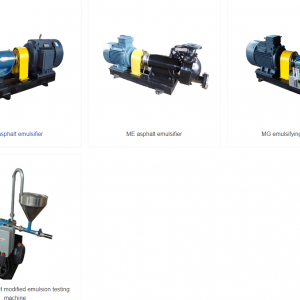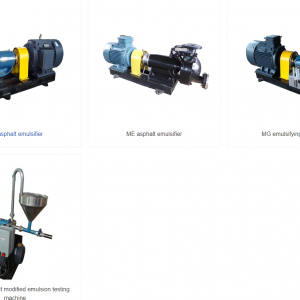In the food industry, rotary colloid mills are invaluable machines for processing materials into more usable forms. Unlike traditional grinders, this type of mill is able to deliver a uniformity in size and texture that is simply impossible to achieve with any other machine. As its name suggests, the rotary colloid mill employs a principle of rotating action to both grinds and emulsify various substances. This is achieved through an adjustable gap between two sets of blades that smash particles against one another as they rotate at high speeds - up to several thousand revolutions per minute. In doing so, this machine can turn solid materials into extremely small pieces and even homogenous mixtures of different substances; it also retains all nutrient values for healthy recipes. In this article, we will look at the working principle and application of the rotary colloid mill in greater detail, so you can get the most out of this powerful tool.
Rotary Colloid Mill
A rotary colloid mill is a machine that grinds, disperses, and mixes viscous liquids and semiliquids. It is also suitable for grinding solids in suspension. The working principle of the rotary colloid mill is that it uses the shearing force generated by the high-speed rotating teeth to make the material be subject to strong shearing and rubbing force so that the material can be quickly ground and mixed. The main application fields of rotary colloid mills are as follows:
1. Food industry: Used for grinding and mixing all kinds of food (such as peanut butter, sesame paste, chocolate sauce, etc.).
2. Pharmaceutical industry: Used for grinding and mixing all kinds of drugs (such as ointments, suspensions, emulsions, etc.).
3. Chemical industry: Used for grinding and mixing all kinds of chemicals (such as paint, ink, coating, etc.).

Working Principle Of Rotary Colloid Mill
The working principle of a rotary colloid mill is simple: it relies on the force generated by a rotating disk to grind and process materials. The disk is composed of a series of blades, which rotate at high speeds. As the disk rotates, the blades create a powerful centrifugal force that grinds and processes the material.
The rotary colloid mill is an ideal choice for a wide variety of applications, including grinding, emulsifying, homogenizing, and dispersing. The mill can be used with a wide range of materials, including viscous and non-viscous fluids, gels, pastes, and suspensions.
Application Of Rotary Colloid Mill
The application of rotary colloid mill is very wide, it can be used in the food industry, pharmaceutical industry, chemical industry, and other industries.
The rotary colloid mill can be used for emulsifying, homogenizing, and dispersing. It is widely used in the food industry for the processing of liquids, semi-liquids, and emulsions. The rotary colloid mill can also be used for grinding, crushing, and pulverizing. In the pharmaceutical industry, it is widely used for the preparation of ointments, creams, lotions, suspensions, and gels. In the chemical industry, it is widely used for the grinding and dispersing of pigments, dyes, and other chemicals.



